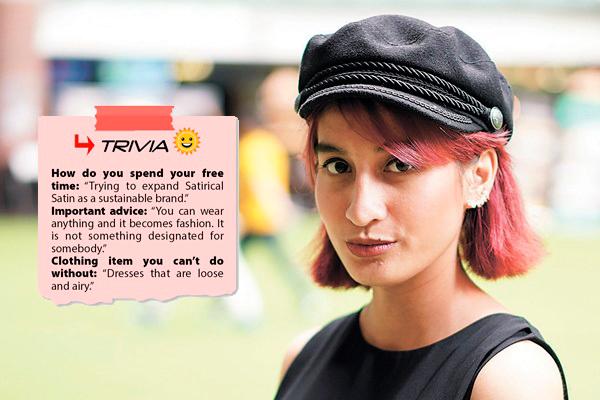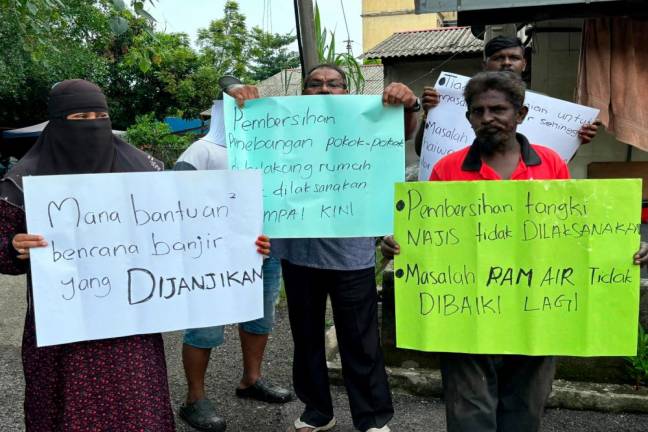FANS of TV show Project Runway, there will be at least one episode where the designers have to repurpose some old items into new clothing and accessories.
This unique challenge inspired sisters Nur Farella, 24, and Nurul Izzati Dayana, 27, when they were coming up with ideas on how to help underprivileged children.
In 2016, the sisters started their company Satirical Satin, with the idea to help orphanages and welfare homes repurpose donated clothing to be sold.
This has not only allowed the children to earn some extra money, but also helped them develop useful skills for the future. And, it may have even inspire some of the children to become fashion designers themselves.
So far, this dynamic duo have worked with five to 10 orphanages and welfare homes. The biggest stumbling block is financing, but the sisters are determined to keep their little project going.
What inspired you to start this initiative?
“I was inspired to start this initiative when one of the girls at the orphanage said that we looked nice. That is when I realised that they could recreate a similar look from the bundle [of clothes] that we gave them.
“[We donated] clothes that we used to wear, that were cleaned and packaged for them. [The clothes] were whatever that was wearable for them (the kids in the home).”
What kind of clothes are we talking about?
“People are not aware that they should not donate certain kinds of clothing. If the home they are donating to is a Muslim one, they shouldn’t be donating singlets, (short) skirts and (short) dresses. They (the homes) garner income from selling these items, and the success rate of selling used garments is low these days.
“So we educate them to [alter] these items – such as turning the skirts and singlets into things like pouches – to sell [and to make them more marketable]. Their target market is the people around their neighbourhood. We know they can’t sell what [the people] can’t wear.
“So we taught them how to repurpose these clothing to generate some income without having any capital to start this business.”
Who taught you how to transform these clothes?
“Initially we gathered some volunteers to teach us how to do it, but now we can teach this ourselves. The volunteers were from different universities, whom I recruited online.”
How many volunteers do you have?
“We recruit them on a programme-to-programme basis. We usually have about 40 but we can recruit up to 60.”
Where do the children sell these repurposed items?
“Right now we are trying to connect them to the right channels. We are trying to teach them how to generate income [by creating] a platform for them to sell their items.
“Actually the focus is helping the youth in these homes. We want to help them become entrepreneurs in the fashion industry.
“We have seen and studied this, leading them to a sustainable future in the industry.
“We want to inspire them to be designers and artisans themselves.”
Have you recycled clothing yourself?
“Yes. I used to exchange clothes with my friends, and that is how the idea evolved. I tweaked the idea a bit for Satirical Satin to add value to these items.
“We teach them how to reuse and redesign the fabric they are using. So we infuse added value because most people are turned off by second-hand clothing.”
How did the name Satirical Satin come about?
“We wanted to add satire to satin, meaning fashion should be equal for everybody. Fashion is not just for the rich.”











